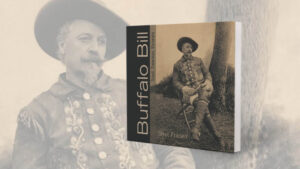A Remarkable Curiosity: Dispatches from a New York City Journalist’s 1873 Railroad Trip across the American West
by Amos J. Cummings, compiled and edited by Jerald T. Milanich, University Press of Colorado, Boulder, 2008, $26.95.
In May 1873, New York Sun editor Amos J. Cummings set off on a westward odyssey on the recently established railroad to San Francisco. Along the way the garrulous journalist spoke to fellow travelers, newspaper editors in the various towns he visited and a wide assortment of farmers, townsfolk and miscellaneous characters. He also recorded his observations of the landscapes over which he traveled, the state of civilization in the places he saw and the events he witnessed in a series of 19 articles that found their way into the Sun. These often colorful vignettes enlightened and entertained Easterners fascinated to know about the wondrous lands that lay in what was still the American frontier. Reprinted with contextual research and annotations by Jerald T. Milanich, archaeological curator at the Florida Museum of Natural History and professor at the University of Florida, they provide 21st-century readers with a still valuable look at the West—and the United States—as it was through Cummings’ eyes.
The “remarkable curiosity” behind the book’s title was his description of a placard he noticed in the smoking car early in his trip, warning, “Beware of confidence men and three-card monte players.” “The car was filled with second-class passengers,” he said. “Occasionally a Pullman’s car traveler dropped in to take a smoke. He was delighted. The hard-fisted emigrants invariably took him for a confidence man. If he wore diamond studs or gold sleeve buttons he was set down for a three-card monte player, and treated to a seat all by himself.”
Cummings saw wondrous landscapes and followed the efforts and misadventures of those who would make their fortunes in the new frontier, such as Canadian-born Colorado farmer Moses Ouellete, who did best with wheat and oats, but said “I never raised but one crop of barley, and the grasshoppers reaped that for me.” Another was Nathan Cook Meeker, agricultural editor in the Sun’s rival, the New York Tribune, who convinced its editor, Horace Greeley, whose “weakness for colonies was well known,” to back his settling of a town in Colorado, provided he “don’t have any fences or rum in it.” Utah’s Governor Brigham Young stars in the eyebrow-raising entry “I Met a Man With Seventeen Wives: Divorce Mormon Style.” And what account of the West would be complete without Cummings’ final tale from Truckee, Nev.: a dispute over honesty between a carpenter named Andy Fuget and a miner named Jack White, settled quite bloodily down on Main Street with six-shooters? Yup, Ambrose Cummings’s 1873 travelogue confirms Marshal Matt Dillon’s frequently voiced mantra (at least in the radio version of Gunsmoke): “And that was [indeed] the West.”
Originally published in the February 2009 issue of Wild West. To subscribe, click here.




